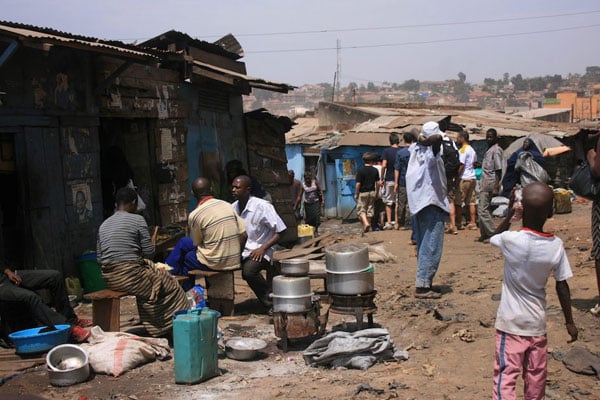Prime
50% of non-poor Ugandans likely to slide back into poverty in event of a shock, says World Bank

Between 30 and 40 percent of Ugandans experience one shock, with households in rural areas and poor households being exposed the most. Photo / File
What you need to know:
- In the last eight years, between 30 and 40 percent of Ugandans experienced at least one shock, with households in rural areas and poor households being exposed the most
At least 50 percent of Ugandans who are classified as non-poor remain vulnerable with a high chance of sliding back into poverty in case of a shock, according to the World Bank.
The shocks, the World Bank notes in its Uganda 2022 Poverty Assessment Brief relate to drought, irregular rains, illness of an income earner or households, floods, pests, death and theft, among others.
The brief, which was released yesterday, indicates that in the last eight years, between 30 and 40 percent of Ugandans had experienced at least one shock, with households in rural areas and poor households being exposed the most.
Rural households, the brief notes, are likely to take the hardest knock from shocks given that such experiences including climate-related shocks, which are the most frequent, impact livelihoods in terms of food and subsistence incomes.
“Climate and weather-related shocks are closely related to agriculture and incomes. These are particularly hard for rural households, who depend on agriculture,” the World Bank said, noting that on top of being more frequently hit by shocks, rural households and the poor have limited means to cope.
These, the brief notes, are likely to deplete their safety nets such as savings, help from relatives, and involuntary reduction of consumption levels in a bid to cope.
Presenting the brief, titled Strengthening resilience to accelerate poverty reduction in Uganda, in Kampala yesterday, Dr Aziz Atamanov, a World Bank senior economist in poverty practice, said rural households and the poorest were more likely to experience shocks than urban or relatively well-off folks.
This, he said, is worsened by the limited likelihood to save among the poor and the decline in the share of agriculture to the economic setup.
Therefore, the World Bank indicated, the 40 percent who have been affected by shocks in the last eight years, had experienced a decline in income and assets with a number of them sliding back into poverty.
“About 36 percent of chronically poor and 36 percent of those who turned poor in 2019/20 after being non-poor in 2015/16 experienced at least one shock in 2015/16,” the brief reads in part.
Dr Michael Atingi-Ego, the Bank of Uganda deputy governor, said because many Ugandans are classified as poor, they are “vulnerable to shocks and the serious issue that needs to be addressed is climate change through environment, social governance”.
Classified as poor
Dr Michael Atingi-Ego, the Bank of Uganda deputy governor, said because many Ugandans are classified as poor, they are “vulnerable to shocks and the serious issue that needs to be addressed is climate change through environment, social governance”.



